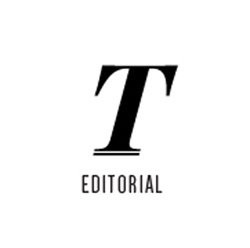Last week, the Service de Police de la Ville de Montreal (SPVM) revealed they had obtained a warrant to monitor the cell phone of La Presse journalist Patrick Lagacé in order to determine the identity of his sources for an investigation into police fabrication of evidence. Over the last several months, police obtained 24 warrants from provincial courts to monitor the numbers of Lagacé’s incoming and outgoing calls and the GPS location of his phone. Since then, both the SPVM and the Sûreté du Québec (SQ) have admitted to monitoring the phones of at least nine other journalists and confiscated the laptop of another.
This behaviour on the part of Quebec police, as well as the courts responsible for issuing the warrants, is deeply troubling. The scandal could have damaging consequences for provincial media outlets, as well as for Quebec citizens, who depend on the local press and are equal stakeholders in the right to freedom of the press.
For investigative journalists, the anonymity of sources is sacrosanct. It is through this guarantee of anonymity that whistleblowers and other vulnerable sources can feel safe to come forward and share their information with journalists. This process is often crucial when it comes to exposing instances of government or private corruption, abuses of authority, or corporate malpractice—indispensable stories that help keep governments and corporations accountable to the citizenry. Investigative pieces, such as The Boston Globe’s famous exposée on sexual abuse in the Catholic Church, often depend on confidential testimony from victims. If sources no longer feel that they can talk to journalists without the risk of exposing identities to police and other figures of authority, they will be less likely to come forward. Fewer stories will be exposed, meaning both the press and the public will suffer.
A free and independent press has a vital role in democracies; this scandal risks jeopardizing that function. Because citizens can only hold their government accountable if they are informed, the press performs an essential democratic service through its reporting. In Canada, this role is enshrined in the Constitution: Section 2(b) of the Charter of Rights and Freedoms guarantees “freedom of the press and of other media of communication.” By invading the privacy of Lagacé and other journalists by monitoring their phones and seizing laptops, the police are impeding the media’s ability to provide this service.
The manner in which these warrants to monitor journalists were granted also has concerning implications. These journalists were not monitored because they were suspected of a crime: Their privacy was violated as a means to gather information on others.
Surveillance in the digital age opens a significant number of new possibilities for police agencies, but they must continue to operate in a way that allows for the protection of privacy rights—especially when anonymous sources are involved—by maintaining the same standards of probable cause as other forms of police work.
If there is anything to be gained from this scandal, it may be the increased interest in protections for journalists in Canada. According to Tom Henheffer of the Canadian Journalists for Free Expression, Canada “doesn’t have anywhere near the kinds of protections [for journalists] that most Western democracies do.” This includes the lack of “shield law,” which would prevent journalists from being compelled to reveal anonymous sources in court.This includes the lack of “shield law,” which would prevent journalists from being compelled to reveal anonymous sources in court.
The Montreal police’s behaviour should be troubling not only to members of the media, but to anyone concerned with the state of democracy in Quebec. The provincial government has announced the creation of a public inquiry to look into the affair. Needless to say, the police and the municipal and provincial governments must endeavour to regain the trust of the media and the people. This scandal should also serve as a sober reminder of the value of and need to protect freedom of the press in Quebec.








